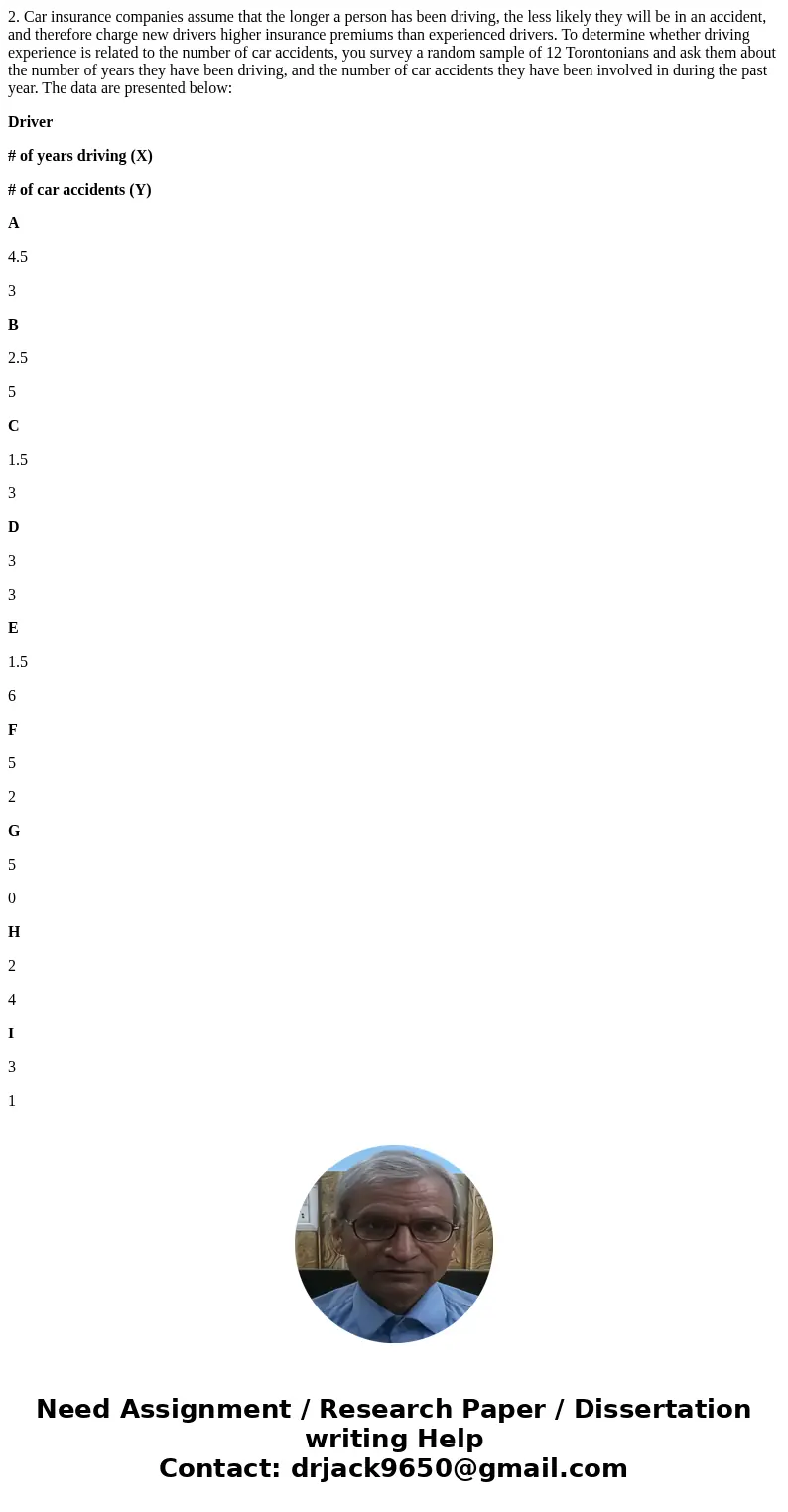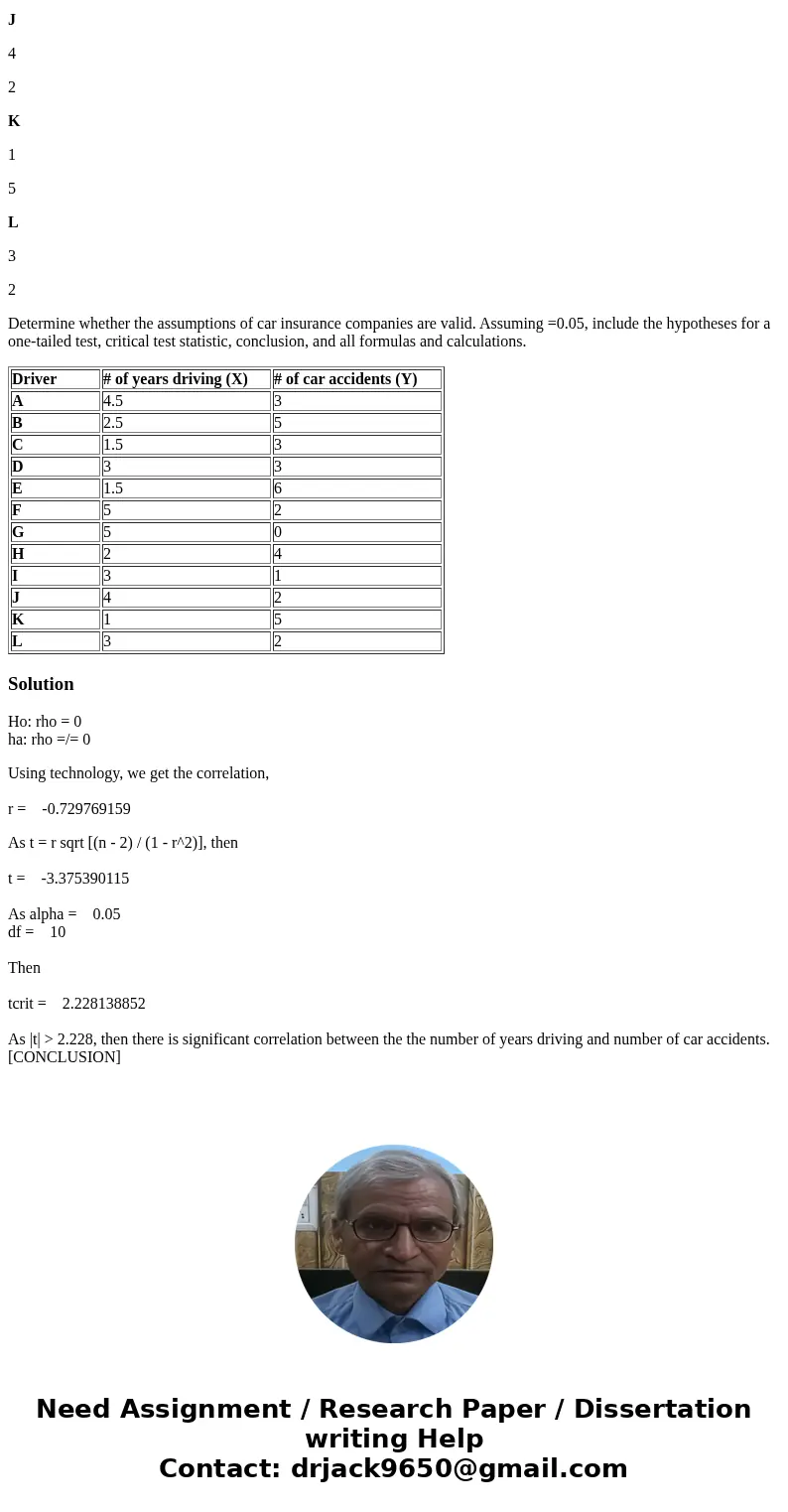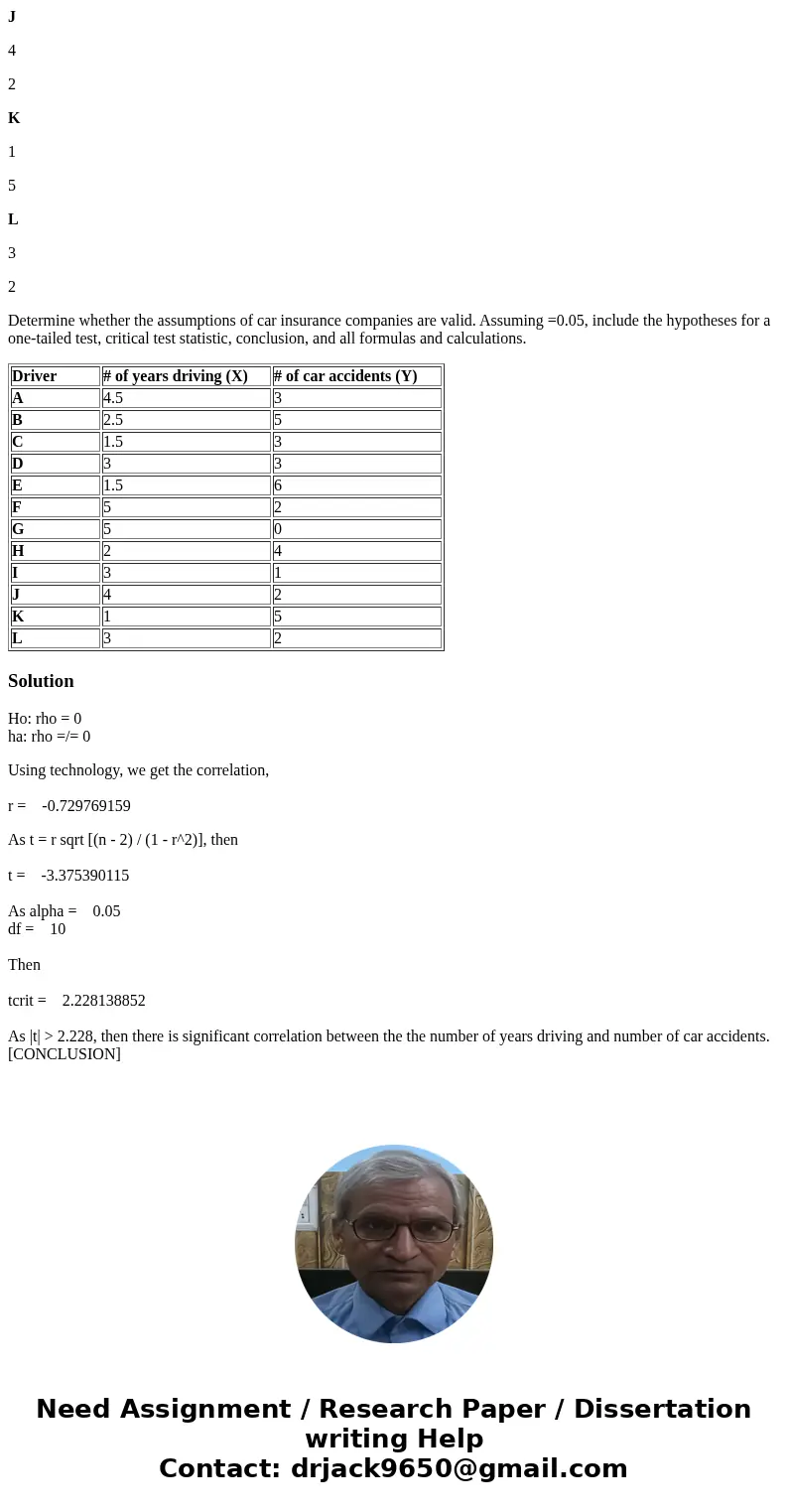2 Car insurance companies assume that the longer a person ha
2. Car insurance companies assume that the longer a person has been driving, the less likely they will be in an accident, and therefore charge new drivers higher insurance premiums than experienced drivers. To determine whether driving experience is related to the number of car accidents, you survey a random sample of 12 Torontonians and ask them about the number of years they have been driving, and the number of car accidents they have been involved in during the past year. The data are presented below:
Driver
# of years driving (X)
# of car accidents (Y)
A
4.5
3
B
2.5
5
C
1.5
3
D
3
3
E
1.5
6
F
5
2
G
5
0
H
2
4
I
3
1
J
4
2
K
1
5
L
3
2
Determine whether the assumptions of car insurance companies are valid. Assuming =0.05, include the hypotheses for a one-tailed test, critical test statistic, conclusion, and all formulas and calculations.
| Driver | # of years driving (X) | # of car accidents (Y) |
| A | 4.5 | 3 |
| B | 2.5 | 5 |
| C | 1.5 | 3 |
| D | 3 | 3 |
| E | 1.5 | 6 |
| F | 5 | 2 |
| G | 5 | 0 |
| H | 2 | 4 |
| I | 3 | 1 |
| J | 4 | 2 |
| K | 1 | 5 |
| L | 3 | 2 |
Solution
Ho: rho = 0
ha: rho =/= 0
Using technology, we get the correlation,
r = -0.729769159
As t = r sqrt [(n - 2) / (1 - r^2)], then
t = -3.375390115
As alpha = 0.05
df = 10
Then
tcrit = 2.228138852
As |t| > 2.228, then there is significant correlation between the the number of years driving and number of car accidents. [CONCLUSION]



 Homework Sourse
Homework Sourse